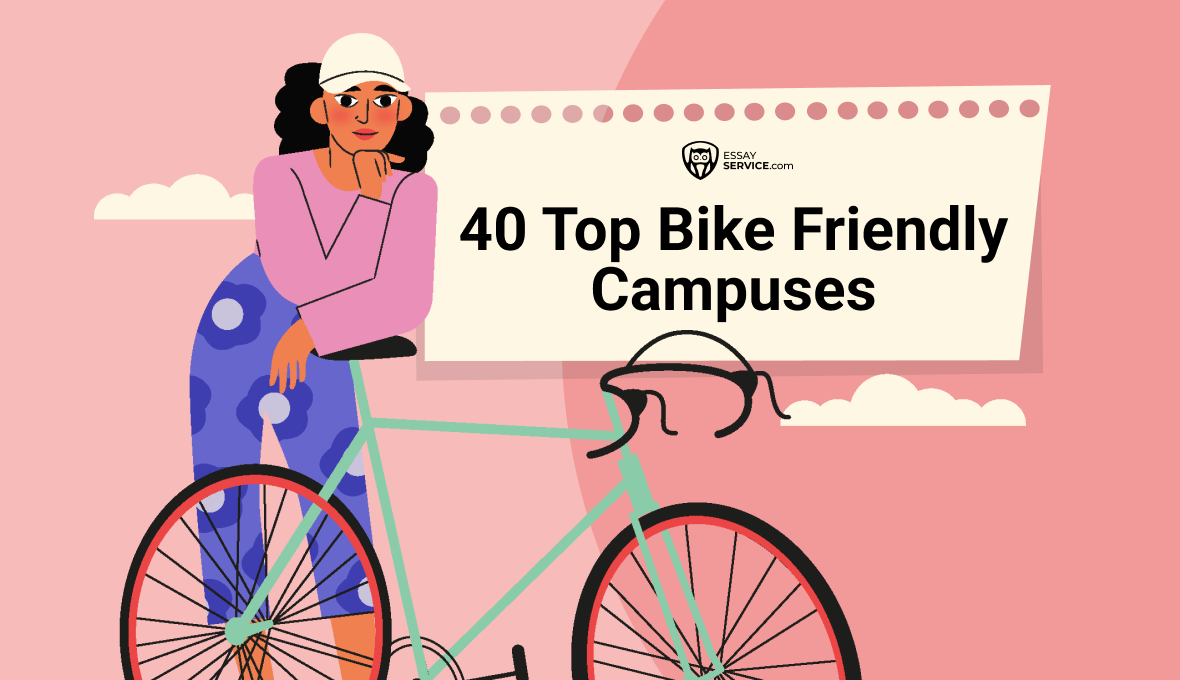Atlanta, a dynamic metropolis, is a thriving hub of higher education. The city boasts a diverse array of colleges and universities, each offering unique academic experiences and opportunities. From renowned research institutions to liberal arts colleges, the Atlanta area caters to a wide range of student interests and aspirations. This article discusses the best colleges in Atlanta, providing essential insights such as academic reputation, program offerings, renowned professors, and overall niche grades to assist you in identifying the ideal institution.
At EssayService, a dedicated academic support platform, we understand the challenges students face during the college application process. Our team of experienced writers and editors is committed to providing exceptional writing and editing assistance to help you present your best self to admissions committees!

What Eligibility Criteria Colleges in Atlanta Have?
To apply to the best college in Atlanta, you typically need to meet certain requirements. These can vary between schools, but here are common ones:
- High School Diploma or Equivalent: Most colleges require a high school diploma or a GED (General Educational Development) certificate.
- Academic Record: Your high school grades are important. Many schools look at your GPA (Grade Point Average) to see how well you did in your classes.
- Standardized Test Scores: Some colleges may require SAT or ACT scores. These tests measure your academic abilities.
- Application Form: You'll need to fill out an application form provided by the college. This form asks for personal information and your academic history.
- Letters of Recommendation: Some schools may ask for letters from teachers or counselors who can speak about your character and abilities.
- Essay or Personal Statement: Many colleges require you to write an essay or personal statement to share your goals and experiences.
It's essential to check the specific requirements of each college you're interested in, as they may have additional or different criteria.
Emory University
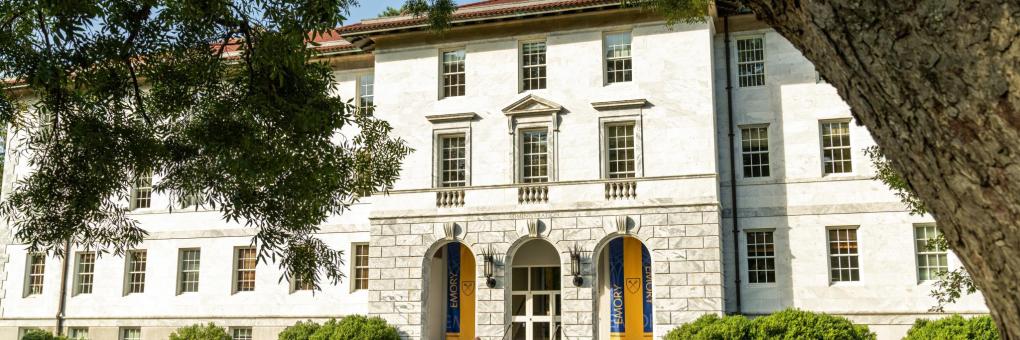
Emory University is a highly respected private university located in Atlanta, Georgia. Known for its strong academic programs, Emory attracts students from across the United States and around the world. With a focus on liberal arts and sciences, Emory offers a well-rounded education that prepares students for a variety of careers. The university is also renowned for its medical school and other healthcare programs.
Emory University is renowned for its academic excellence and close-knit community. The institution offers a favorable student-to-faculty ratio of 9:1, ensuring personalized attention and fostering strong mentor-student relationships. Emory consistently ranks among the top 25 universities in the United States, particularly noted for its distinguished programs in healthcare, including nursing and public health. Additionally, the university is recognized for its commitment to sustainability, earning a reputation as one of the most environmentally conscious campuses in the nation.
Abdullahi Ahmed An-Na'im
Ph.D.
Charles Howard Candler, Professor of Law, Emory Law
Elizabeth Downe
DNP
Betty Tigner Turner Clinical Professor, Nell Hodgson Woodruff School of Nursing
Eri Saikawa
Ph.D.
Associate Professor and Director of Graduate Studies, Environmental Sciences
Bruce Ribner
MD/MPH
Professor of Medicine and Director of the Emory University Hospital Serious Communicable Diseases Unit
Georgia Institute of Technology

Georgia Tech is a leading public university renowned for its exceptional engineering and technology programs. Located in Atlanta, Georgia Tech offers students a dynamic learning environment with a strong emphasis on innovation and research. As a top-tier institution, Georgia Tech graduates are highly sought after by employers in various industries. The university is particularly recognized for its cooperative education program, which provides students with valuable practical experience.
The student body is diverse, with students from all 50 states and over 100 countries. Georgia Tech consistently ranks among the top 10 public universities in the country. The institute is known for its robust co-op program, with 85% of students participating in internships or co-op experiences before graduation. Additionally, Georgia Tech's research expenditures exceed $1 billion annually, positioning it as a major player in innovation and technological advancements.
Said I. Abdel-Khalik
Ph.D.
Professor Emeritus; Research Area: Nuclear & Radiological Engineering
Cyrus K. Aidun
Ph.D.
Research Area: Fluid Mechanics
Antonia Antoniou
Ph.D.
Research Area: Mechanics of Materials
William Z. Black
Ph.D.
Research Areas: Heat Transfer, Combustion and Energy Systems
Georgia State University

Georgia State University is a large public institution renowned for its commitment to student success and affordability. Located in the heart of Atlanta, it offers a diverse range of undergraduate and graduate programs, particularly excelling in fields like business, criminal justice, and public health. Georgia State is also recognized for its innovative teaching methods, including personalized learning technology, and its strong focus on career preparation. With a large student body, it offers a vibrant campus life and numerous opportunities for student involvement.
Georgia State University is one of the largest and most diverse institutions in the United States, with a student population exceeding 52,000. The university is known for its strong commitment to student success, reflected in its innovative use of data analytics to improve graduation rates, which have increased by over 20 percentage points in the last decade. Georgia State is recognized as a national leader in graduating minority students, ranking first in the nation for bachelor’s degrees awarded to African American students. The university offers more than 250 degree programs across 10 colleges and schools, providing a wide array of academic opportunities. Located in the heart of Atlanta, Georgia State benefits from its urban setting, offering students access to numerous internships, job opportunities, and cultural experiences. Additionally, the university's research expenditures exceed $200 million annually, contributing to its growing reputation as a major research institution.
Ashwin Ashok
Ph.D.
Assistant Professor in the Dept. of Computer Science and the Director of the MORSE Studio research lab at Georgia State University (GSU)
Jessica Berry
Ph.D.
German Philosophy/Greek Philosophy
Zhipeng Cai
Ph.D.
Internet of Things, Privacy and Security, Big Data, Algorithm Design and Analysis
Jeremy Diem
Ph.D.
Applied climatology, hydroclimatology, human impacts on the environment
Clark Atlanta University
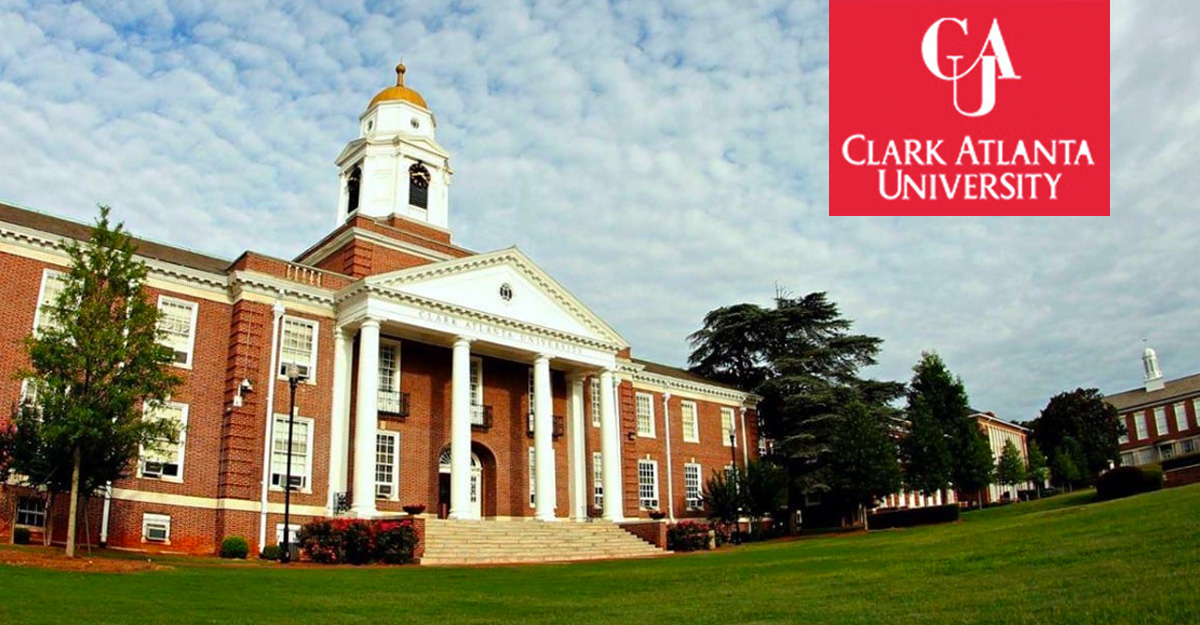
Clark Atlanta University is a historically Black university (HBCU) with a rich history rooted in social justice. Founded in 1865, it was the first institution to award graduate degrees to African Americans. Today, CAU is a dynamic, research-focused university offering a wide range of undergraduate and graduate programs.
The university enrolls over 4,000 students and offers more than 40 degree programs across four schools, including the arts, sciences, business, and education. CAU is particularly noted for its strong programs in social work, business administration, and STEM fields.
The university has a student-to-faculty ratio of 14:1, ensuring personalized attention and mentorship. CAU is also a leader in research, with significant contributions in areas such as cancer research, data science, and social justice. Located in Atlanta, a major metropolitan hub, students benefit from the university's proximity to numerous cultural, professional, and networking opportunities, enhancing their overall educational experience.
Fisseha Abebe
Ph.D.
Associate Professor, Mathematical Sciences
J. Robert Adams
D.M.A.
Interim Chair/Associate Professor, Music
Chike Akua
Ph.D.
Assistant Professor, Educational Leadership
Tom Apaiwongse
Ph.D.
Professor, Marketing
University of West Georgia
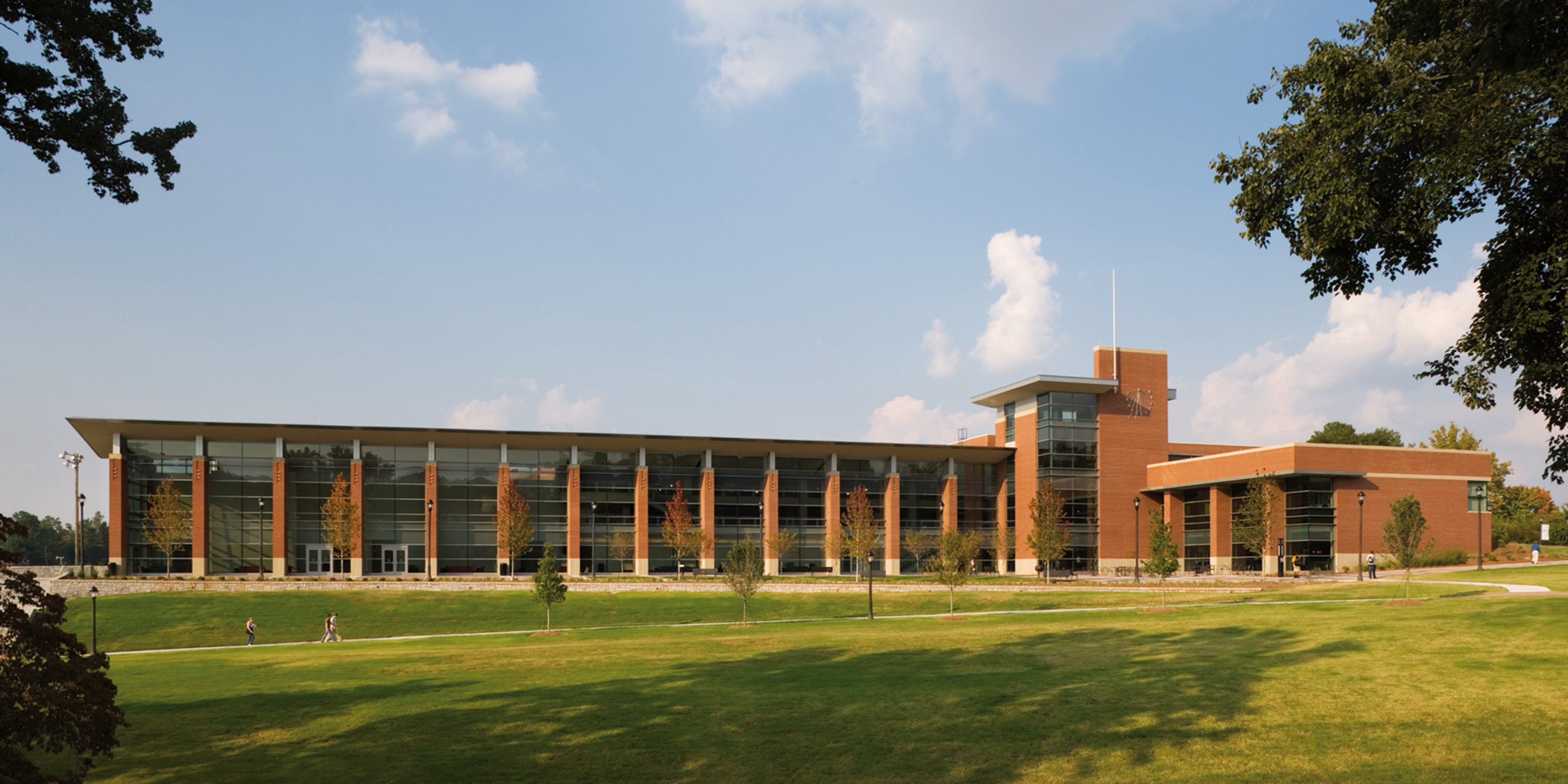
The University of West Georgia offers a diverse range of academic programs, from anthropology and business to mathematics and theater. With a strong focus on student success, UWG cultivates a community of thought leaders and innovators. Students have ample opportunities to explore their passions through research, study abroad, internships, and leadership roles. UWG provides a supportive learning environment with a student-to-faculty ratio of 19:1, ensuring personalized attention. The university boasts a robust library system available 24/7 and over 100 research centers to facilitate academic exploration.
With an enrollment of over 13,000 students, UWG offers more than 90 degree programs across various disciplines, including strong programs in business, education, and nursing. The university has seen a significant increase in online education, with nearly 40% of its students enrolled in at least one online course, reflecting its adaptability to modern learning needs.
UWG boasts a student-to-faculty ratio of 18:1, providing students with ample opportunities for personalized instruction and mentorship. The university's graduation rate has steadily improved over the past few years, demonstrating its focus on helping students achieve their academic goals. Additionally, UWG contributes to the local economy with an annual economic impact of over $600 million. The university’s vibrant campus life includes more than 150 student organizations, fostering a strong sense of community and engagement.
Douglas McWilliams
Ph.D.
Professor of Operations Management/Logistics
Brad Prince
Ph.D.
Professor of Management of Information Systems, Bus Systems Analysis & Design, etc.
A. Rebekah Teal
J.D., MTS
Lecturer of law, ethics, management, and entrepreneurship courses.
Samantha White
MBA
Senior Lecturer of Principles of Management, Human Resource Management, etc.
Spelman College

Spelman College is a prestigious private, historically Black women's liberal arts college situated in Atlanta, Georgia. As a founding member of the Atlanta University Center, Spelman holds a distinguished legacy. Established in 1881, it was the first private historically Black liberal arts institution for women to award college degrees in 1901.
Renowned for its commitment to academic excellence, Spelman empowers women to become leaders in various fields. The college offers a strong liberal arts curriculum, fostering critical thinking, creativity, and intellectual growth.
Spelman College is a prestigious liberal arts college and a leading institution for educating women of African descent. With an enrollment of approximately 2,100 students, Spelman consistently ranks among the top historically Black colleges and universities (HBCUs) in the United States. The college boasts an impressive graduation rate of over 75%, significantly higher than the national average for HBCUs, reflecting its strong commitment to academic excellence and student success.
Spelman’s alumnae network is powerful, with graduates excelling in various fields, including business, law, medicine, and the arts. Notably, Spelman is ranked among the top 50 liberal arts colleges in the nation by U.S. News & World Report. The college maintains a low student-to-faculty ratio of 10:1, ensuring personalized attention and close mentorship. Spelman also places a strong emphasis on social justice and community service, with over 85% of students participating in service-learning or volunteer activities during their time at the college.
Donna Akiba Harper
Ph.D.
English Professor; Research interest in the 20th and 21st Century African American Literature
Narviar Barker-Browne
Ph.D., MSW, LCCP, LSW
Psychology Lecturer
A. Nayena Blankson
Ph.D.
Psychology Professor; Teaching Psychometrics; Developmental Psychology; Child Development; Honors Thesis Seminar
Alma Billingslea-Brown
Ph.D.
English Professor: Professional interests include African-American and African Diaspora studies with emphasis on comparative African literature
Agnes Scott College

Agnes Scott College is a distinguished private women's liberal arts college nestled in Decatur, Georgia. Known for its strong academic focus and supportive community, the college provides a transformative educational experience for approximately 1,000 undergraduate and graduate students. With its Presbyterian affiliation and recognition as one of the prestigious Seven Sisters of the South, Agnes Scott offers a rich tradition combined with modern innovation.
With a student body of approximately 1,000, Agnes Scott offers a highly personalized academic experience, boasting a student-to-faculty ratio of 10:1. The college is widely recognized for its signature SUMMIT program, which integrates leadership development, global learning, and professional success into the core curriculum. This program has earned Agnes Scott national acclaim, placing it among the top 10 Most Innovative Schools according to U.S. News & World Report.
Agnes Scott has a strong track record in producing graduates who go on to pursue advanced degrees, with nearly two-thirds of alumnae attending graduate or professional school within five years of graduation. The college also ranks highly for social mobility, reflecting its commitment to providing opportunities for students from diverse backgrounds.
Carlee A. Bishop
Ph.D.
Professor of Physics
Megan O. Drinkwater
Ph.D.
Professor of Classics: Research interests include Roman Literature, Gender Performance, and Roman Social History
Hannah Marine
M.S.
Instructor of Physics and Astronomy
Yael Manes
Ph.D.
Associate Professor of History
Morehouse College
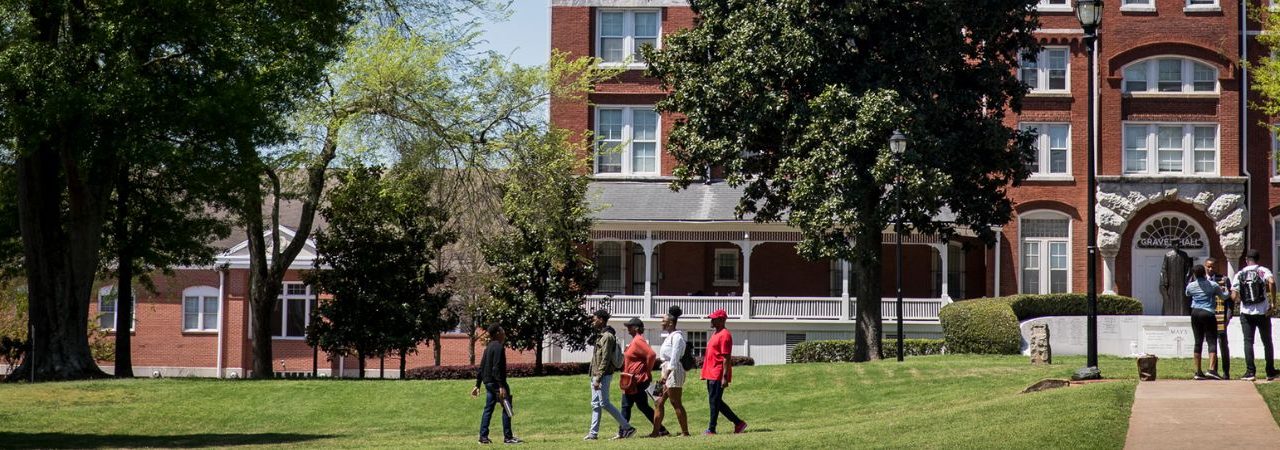
Morehouse College is a renowned historically Black men's liberal arts college with a rich legacy spanning over 150 years. Renowned for producing exceptional leaders, the college has cultivated a tradition of excellence exemplified by distinguished alumni such as Martin Luther King Jr. and Spike Lee.
Beyond its strong academic foundation, Morehouse is at the forefront of innovation, offering online bachelor's degree programs to expand access to education.
With an enrollment of approximately 2,200 students, Morehouse maintains a student-to-faculty ratio of 14:1, ensuring personalized attention and fostering strong mentorship.
Morehouse is renowned for its legacy of producing notable alumni, including prominent figures in politics, business, and the arts. The college ranks highly in the nation for graduating African American men who go on to earn doctoral degrees, particularly in fields like science, engineering, and medicine. Morehouse also emphasizes leadership and service, with over 80% of students engaging in community service during their time at the college. Additionally, the college’s location in Atlanta provides students with access to a vibrant network of professional and cultural opportunities.
JANN H. ADAMS
Ph.D.
Professor, Psychology
EBENEZER O. AKA
Ph.D.
Professor, Humanities, Social Sciences, Media, And Arts Division Faculty
H. JUSTIN BALLENGER
PH.D.
Assistant Professor, STEM Education
LAWRENCE S. BLUMER
PH.D.
Professor of Biology; Science, Technology, Engineering And Mathematics Division Faculty
Oglethorpe University

Oglethorpe University is a private institution with a rich history dating back to 1835. Founded in honor of General James Edward Oglethorpe, the founder of Georgia, the university is deeply rooted in the state's heritage. The campus, characterized by its Gothic revival architecture, is a historic landmark listed on the National Register of Historic Places.
With a student population of approximately 1,500, Oglethorpe offers a highly personalized educational experience, reflected in its student-to-faculty ratio of 14:1. The university is recognized for its Core Curriculum, a set of interdisciplinary courses that all students complete, fostering critical thinking and a broad understanding of the liberal arts.
Oglethorpe’s commitment to affordability and accessibility is demonstrated by its ranking among the top universities in the South for social mobility by U.S. News & World Report. The university is also home to the Oglethorpe University Museum of Art, which hosts nationally recognized exhibitions, adding a rich cultural dimension to campus life. Furthermore, Oglethorpe's location in Atlanta provides students with numerous opportunities for internships, networking, and cultural experiences, enhancing both their academic and professional development.
LEROY CARSON
D.B.A.
Assistant Professor, Business Management; Director, Innovation and Entrepreneurship Center
LANIER BASENBERG
PH.D.
Lecturer of Core Studies
AHMET AKIN
PH.D.
Associate Professor, Finance/Business Analytics
JEFFREY H. COLLINS
PH.D.
Senior Lecturer in Interdisciplinary Studies
Georgia Gwinnett College

Georgia Gwinnett College (GGC) is a relatively young public institution located in Lawrenceville, Georgia. Established in 2006, it has experienced remarkable growth, expanding from a small cohort of 118 students to a thriving campus community of approximately 12,000. As part of the University System of Georgia, GGC offers a modern approach to higher education with a strong focus on student success.
The college boasts a diverse student body, with nearly 60% of students identifying as minorities, making it one of the most diverse colleges in Georgia. GGC has a student-to-faculty ratio of 18:1, ensuring that students receive personalized attention and support throughout their academic journey.
One of GGC's standout features is its emphasis on small class sizes, with an average class size of just 20 students, fostering close interaction between students and faculty. The college is also recognized for its commitment to affordability, with tuition rates among the lowest in the state. Additionally, GGC has been noted for its strong focus on technology, providing students with access to state-of-the-art facilities and resources that enhance their learning experience.
Dr. Sherly Abraham
Ph.D.
Associate Professor of Information Technology
Dr. Gerald Agbegha
Ph.D.
Associate Professor of Mathematics
Glory Alexander
Ph.D.
Lecturer of Biology, Anatomy and Physiology
Dr. Kristi Bruce Amatucci
Ph.D.
Professor of Literacy Education, Secondary Education Interim Department Chair
Conclusion
The top colleges in Atlanta cater to various academic interests and career goals. Among the many outstanding institutions, five stand out as top contenders:
- Georgia Institute of Technology (Georgia Tech)
- Emory University
- Georgia State University
- Clark Atlanta University
- Morehouse College
While this list provides a strong foundation, it's essential to conduct thorough research based on your specific academic and career aspirations.
Don't forget - EssayService can be a valuable resource throughout your college application process. Our team of experts offers comprehensive writing and editing services to help you create compelling essays and application materials!
FAQs
What is the Number One College in Atlanta GA?
Georgia Institute of Technology (Georgia Tech) is often considered the top college in Atlanta. It's known for its strong programs in engineering, science, and technology.
What is the Prestigious University in Atlanta?
Atlanta has several prestigious universities. Two stand out:
- Georgia Institute of Technology (Georgia Tech): Excellent for tech and engineering.
- Emory University: Renowned for its strong academic programs across many fields.
What is the Hardest College to Get into in Atlanta?
The hardest college to get into in Atlanta is Emory University. It has a competitive admissions process, with high standards for GPA, test scores, and other application components.
Niche: Explore Schools, Companies, and Neighborhoods. (2014). Niche. https://www.niche.com/
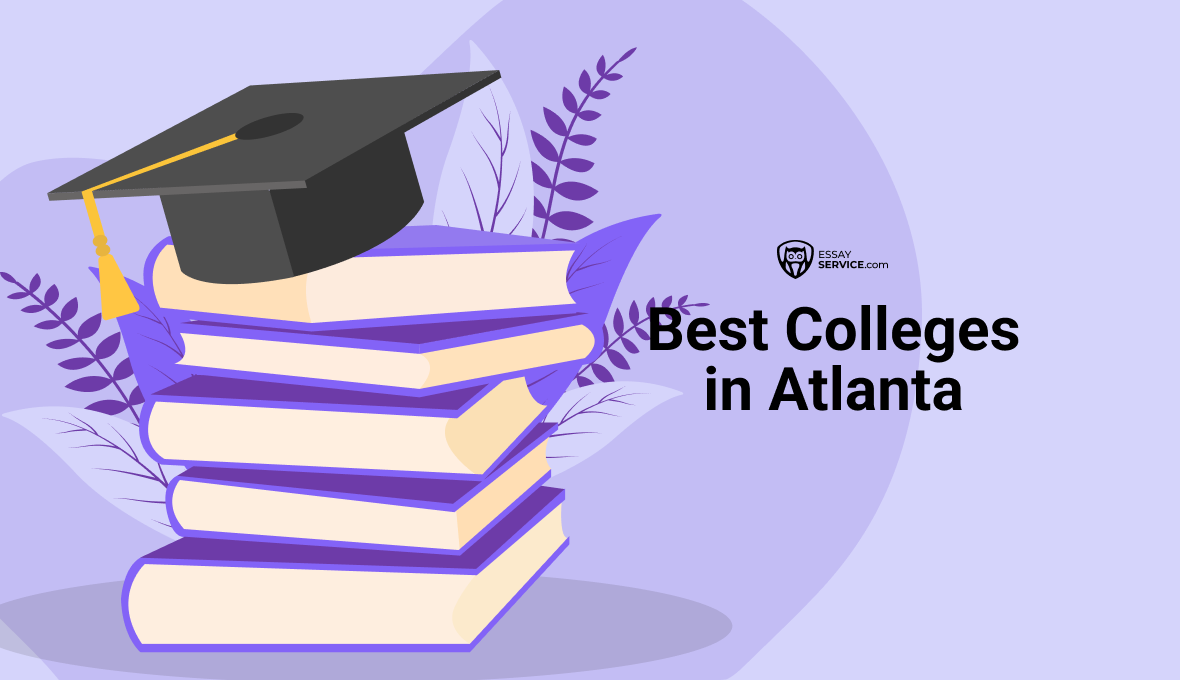
.png)
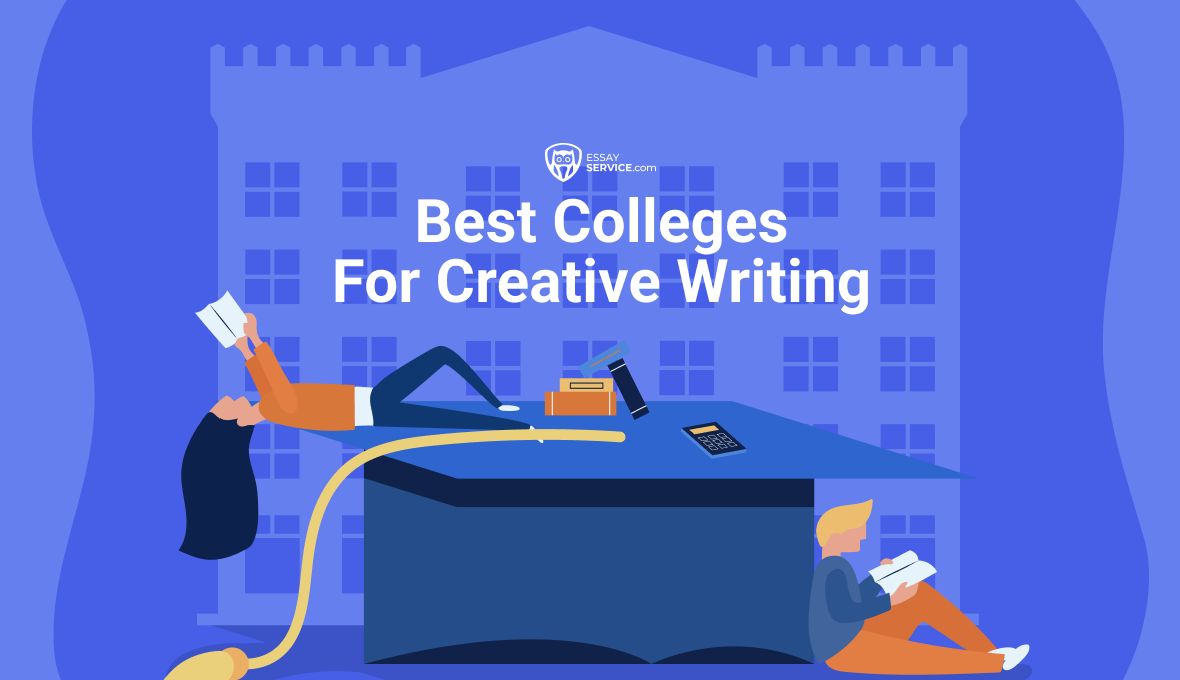
.webp)
